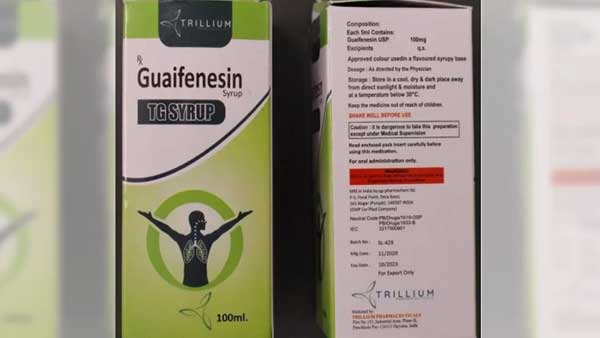Guaifenesin is a common ingredient in many over-the-counter cough and cold medications. This article provides a comprehensive overview of guaifenesin syrup: what it is, how it works, dosing instructions, side effects, precautions, and drug interactions.

What is Guaifenesin?
Guaifenesin is an expectorant medication used to help clear mucus and congestion associated with coughs, colds, bronchitis, and other breathing illnesses. By thinning mucus secretions in the airways, guaifenesin makes coughs more productive and breathing easier.
Guaifenesin provides symptomatic relief and works best when combined with rest, fluids, and over-the-counter pain relievers. However, it does not treat the underlying infection causing respiratory symptoms.
Using Guaifenesin Safely and Effectively
When using guaifenesin syrup, be sure to carefully follow dosing instructions on the product packaging. The standard guaifenesin dose for adults and children 12 years and over is 200-400 mg every 4 hours as needed, not to exceed 2,400 mg per day.
For children ages 6-11, provide an age-appropriate dose based on weight or as directed by a pediatrician. Guaifenesin should not be used in children under 6 years old without medical supervision. Drink plenty of water when taking guaifenesin to help thin mucus.
If symptoms worsen or persist beyond one week, consult a physician right away as this could indicate a more serious health issue requiring medical treatment. Immediately seek emergency care for severe side effects like swollen throat, trouble breathing, or rapid heartbeat.
What Are the Side Effects of Guaifenesin?
When used as directed, guaifenesin is generally well tolerated. Potential guaifenesin side effects may include:
- Nausea, vomiting, stomach pain
- Dizziness
- Rash or itchy skin
Rarely, guaifenesin can trigger dangerous allergic reactions like swelling, hives, and breathing difficulties. Discontinue use and seek immediate medical care if any concerning side effects develop while taking guaifenesin.
Special Precautions for Guaifenesin Use
Before using guaifenesin, inform your doctor about any medical conditions, especially:
- Breathing problems like chronic bronchitis or emphysema
- Cough with blood or large amounts of phlegm
- Diabetes or liver disease
- Phenylketonuria (PKU)
- Planned surgery
Guaifenesin may interact with certain lab tests, such as urine acid measurements. Verify with the testing facility if guaifenesin usage could influence results. The liquid form of guaifenesin often contains sugar, so use caution if diabetes is a concern.
During pregnancy and breastfeeding, only use guaifenesin if explicitly approved by a doctor as benefit may outweigh potential infant risk.
Key Guaifenesin Drug Interactions
Using guaifenesin with other medications that contain guaifenesin or phenylephrine increases your risk for overdose and life-threatening side effects. Avoid combinations by carefully reviewing all product labels.
Inform healthcare providers about all prescription, over-the-counter, herbal, or recreational substances you take to prevent dangerous interactions with guaifenesin. Do not adjust guaifenesin dosing without medical guidance.
Understanding the Benefits and Risks
When used as directed, guaifenesin offers helpful, temporary relief from cough and chest congestion. But improper use can trigger harmful side effects. Discuss guaifenesin with a pharmacist or doctor to ensure safe, effective treatment tailored to your situation.
